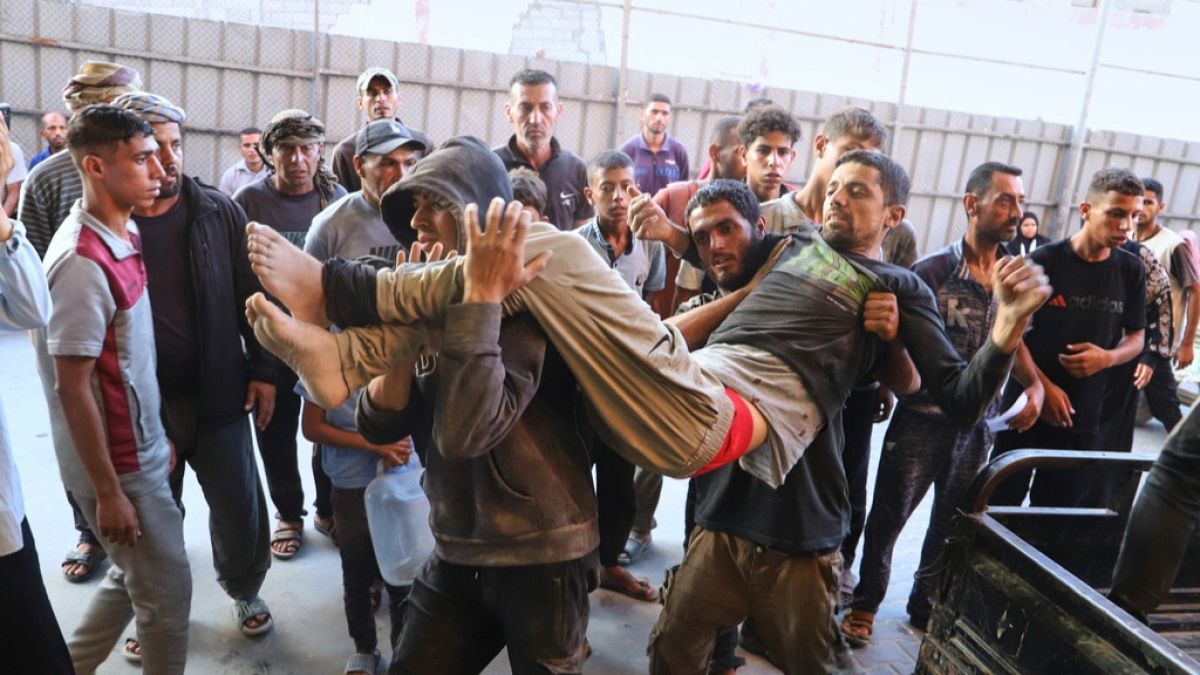

In recent days, the world has witnessed escalating tensions and humanitarian challenges in the Middle East, as renewed conflicts have brought matters to a critical point. This situation has drawn international attention and calls for diplomatic interventions, highlighting complex geopolitical dynamics and urgent humanitarian needs.
The Gaza Strip, a recurrent flashpoint in the Israeli-Palestinian conflict, is currently facing severe distress. According to reports, Israeli troops opened fire on Palestinians who were attempting to reach food distribution sites, resulting in 32 deaths. This incident is part of a larger pattern of violence, with Gaza’s health ministry reporting that 85 Palestinians have been killed while queuing for food across various locations, predominantly in northern Gaza.
Pope Leo XIV has expressed his dismay, condemning the “barbarity” of the ongoing conflict and the indiscriminate use of force. He mentioned the tragic strike on Gaza’s only Catholic church, which resulted in the deaths of three people, underscoring the deep human impact of the violence in the region. The World Food Programme has also voiced criticism, labeling any violence against civilians seeking humanitarian aid as “totally unacceptable.”
Amid these distressing events, efforts to negotiate a ceasefire between Israel and Hamas continue under challenging circumstances. Mediation efforts, spearheaded by the United States and Qatar, appear to be at an impasse, with disagreements persisting over key issues such as Israel’s military presence and Hamas’s role in Gaza. Diplomats and peace advocates emphasize the need for renewed commitment to dialogue to prevent further loss of life and to pave a path toward stability and peace.
In parallel developments, the ongoing military tensions in Eastern Europe have also captured global focus. Overnight, Russia launched a massive drone attack on Ukraine, deploying over 300 drones along with 30 missiles, targeting cities including Odesa. The assault resulted in the death of one individual in Odesa, highlighting the continued volatility in the region. Ukrainian President Volodymyr Zelenskyy has condemned these actions, and analysts are signaling concern over the potential for further escalation.
This resurgence of military activity in Ukraine comes amid broader geopolitical shifts. At the Aspen Security Forum, discussions highlighted the enduring impact of recent changes in U.S. foreign policy, particularly the recalibration of trade, aid, and military strategies post-Trump era. Attendees acknowledged that the global order has been irreversibly transformed, ushering in a new era of international relations that will shape geopolitical landscapes for years to come.
As the world watches these regions with apprehension, there is a collective call for responsible leadership and effective diplomacy to address the root causes of these conflicts. In the face of adversity, it is essential to uphold principles of humanitarian aid and protection of civilian lives, fostering an environment where peace and cooperation can eventually replace hostility and division.
Source: {link}
